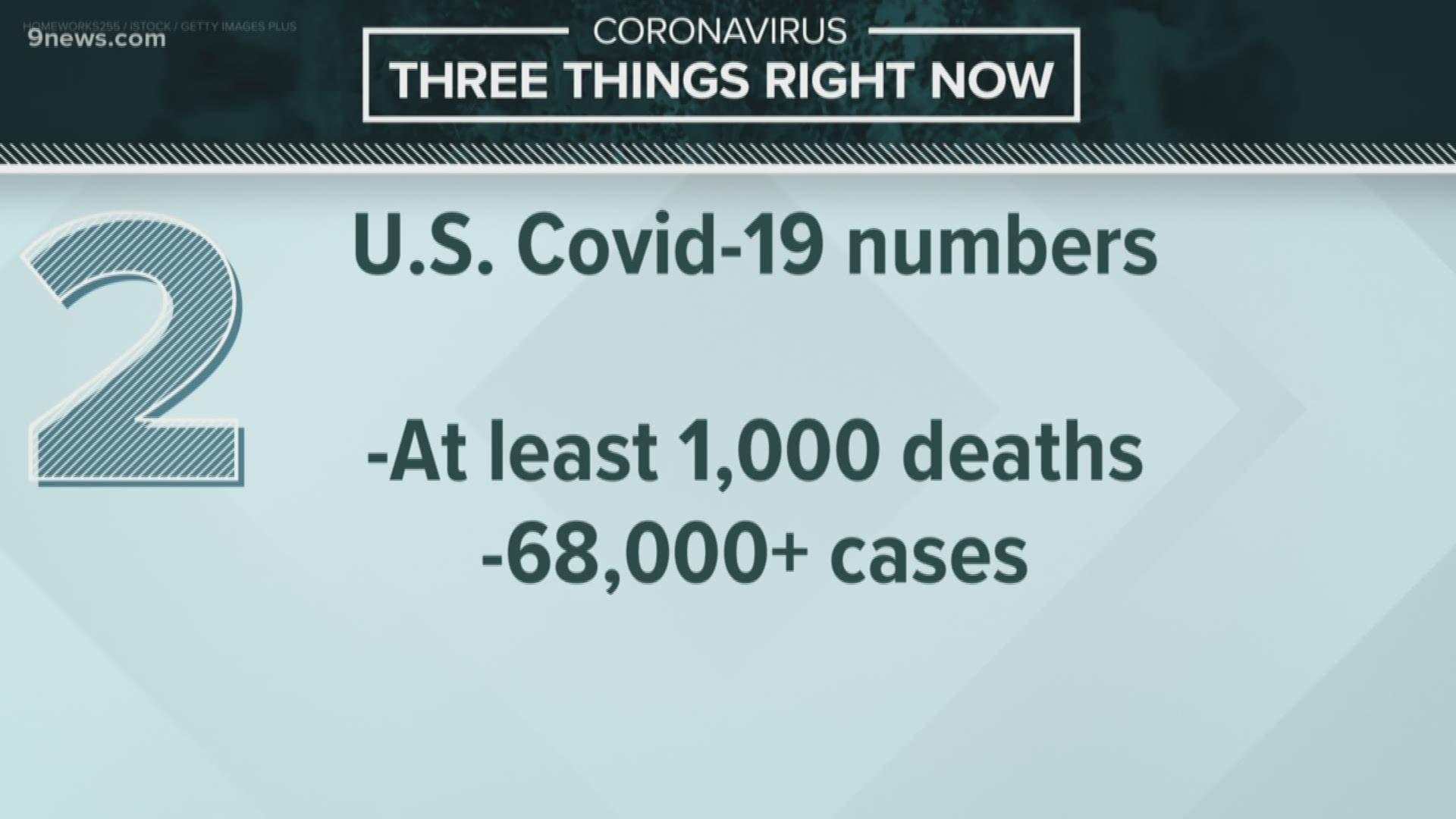COLORADO, USA — The Colorado Dept. of Public Health & Environment (CDPHE) hosted a remote news conference Thursday at 11 a.m. to answer questions regarding Colorado's response to the COVID-19 outbreak.
Scott Bookman, incident commander, and Mike Willis, director of the State Emergency Operations Center — answered questions from the media during the call.
Many of the questions asked were aimed to get an update on the status of the spread of the novel coronavirus, COVID-19, in the Colorado and the state's response to it.
Below are some of the questions asked during the remote news conference.
(Editor's note: responses have been edited for context and clarity.)
Does the state order supersede local jurisdictions?
Willis: The executive order becomes a law in the state. While communities can be more restrictive, no communities can be less restrictive.
How long will it be before we see a dip in the number of COVID-19 patients?
Bookman: It could take a few weeks before we see any change in those numbers.
What are the plans for mountain communities if there is a surge of patients there?
Bookman: The state is working with partners all across the state will be working on mechanisms to move patients across the state if needed.
What's the status of additional equipment Colorado received?
Willis: The easiest thing to numerate is what we have gotten from the stockpile. We've received an additional 49,920 N95 masks, an additional 117500 surgical masks, an additional 21,312 face shields, an additional 21,820 surgical gowns and 108,000 sets of gloves.
Is there an update on testing procedures?
Willis: The state is taking advantage of a federal program through the Dep. of Health and Human Services that will provide test kits and personal protective equipment to conduct testing on health care workers and first responders. ... The program is providing 5,000 test kits and hopefully another 2,500 next week to test these workers.
There will be three locations for testing, one northern, one southern and one on the western slope. The tests will not be available to the general public.
--------------------------------------------------------------------------------------------------
The call comes the day after Gov. Jared Polis announced a statewide stay-at-home order that went into effect Thursday at 6 a.m. and lasts through at least April 11.
"We all have to do our part," said Willis when asked if the state would take more extreme measures. "That is the big thing here, for all of us to do our part and ask our neighbors to do their part."
Willis also stressed that voluntary compliance is critical to make the order effective.
This executive order means Coloradans should not be leaving their homes except for critical activities including:
- Obtaining food and other household necessities including medicine (cannabis and liquor stores will remain open)
- Going to and from work if you are a critical employee
- Seeking medical care
- Caring for dependents or pets
- Caring for a vulnerable person in another location
- Participating in outdoor recreation at a legally-mandated safe distance of six feet or more from other parties
- Read the full order here
The order comes hours after multiple metro Denver counties — including Douglas, Arapahoe, Adams, Jefferson, Boulder, Broomfield and Larimer — issued stay-at-home orders earlier Wednesday. Several of those counties have since rescinded their orders and adopted the state order.
Denver issued an order Monday that went into effect Tuesday at 5 p.m.
COVID-19 is a virus that first appeared in Wuhan, China, in late 2019. Symptoms of COVID-19 can include fever, cough and breathing trouble. Most patients develop only mild symptoms. But some people, usually those with other medical complications, develop more severe symptoms, including pneumonia, which can be fatal.
RELATED: Colorado COVID-19 cases: March 26-29
SUGGESTED VIDEOS: COVID-19 Coronavirus

